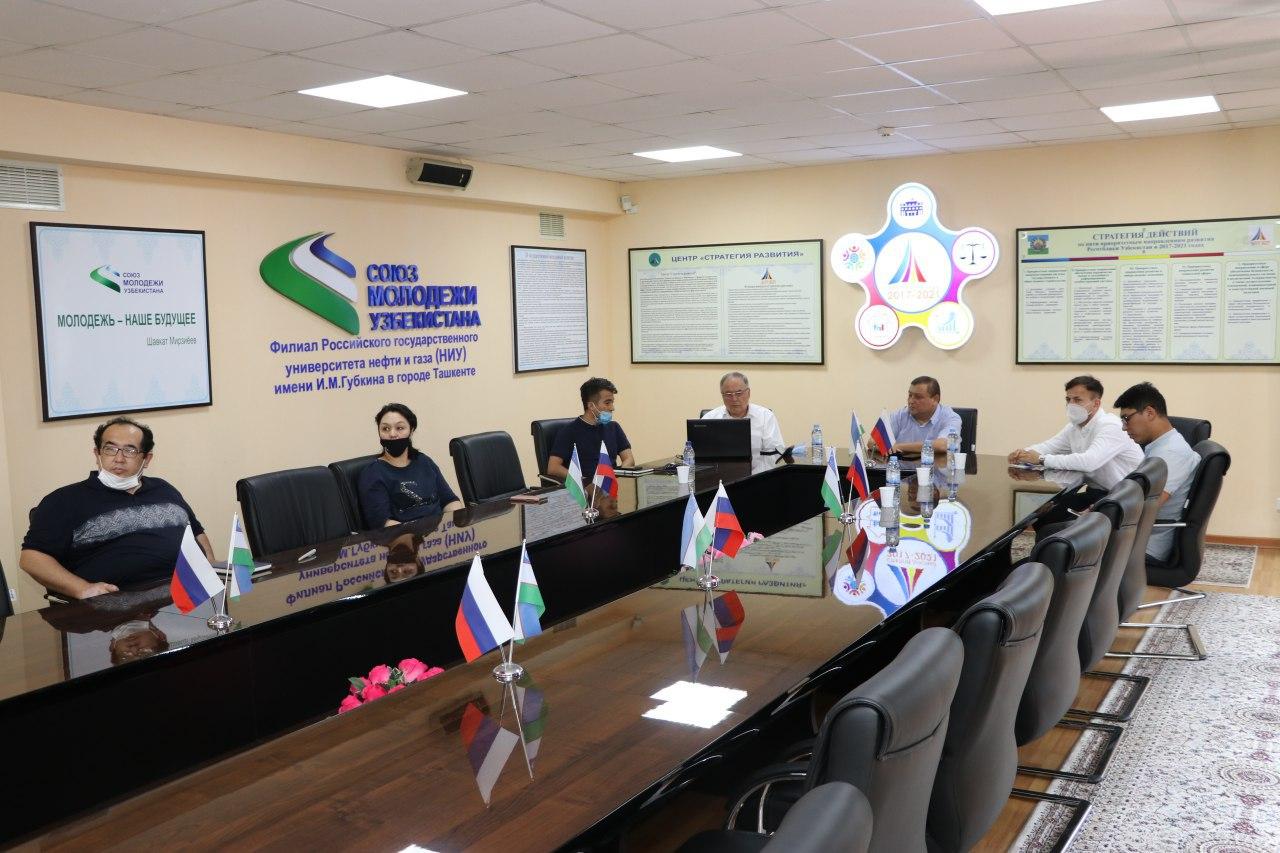Tashkent - Belgium: expanding the boundaries of scientific communication
Significantly expanded the international audience of scientific researchers and thereby increased the scientific status of the project of video conferences initiated by the Department of Mathematics and Computer Science at the Branch of the Russian State University of Oil and Gas (NRU) named after I.M.Gubkin in Tashkent.
The second international online seminar with the participation of the faculty of the department was held here under the guidance of a world-famous scientist Professor Michael Ruzhansky (Ghent University, Belgium).
According to the organizers, the organization of international online seminars with the participation of world famous experts seems relevant within the framework of the particular attention paid by the leadership of Uzbekistan to improving the teaching technique of this science and creating a competitive environment in mathematics.
The mathematical webinar held earlier within the walls of the Branch, which was led by academician of the Academy of Sciences of the Republic of Uzbekistan, Doctor of Physical and Mathematical Sciences, Professor Shavkat Alimov, gathered mainly representatives of universities from the CIS countries and regions of the republic. The relevant topic “Determination of the order of fractional derivative for subdiffusion equations” considered during this forum - “Determining the order of the fractional derivative for subdiffusion equations” aroused great interest in the international community, resulting in the next online seminar, which continued and deepened the conclusions of the previous webinar.
The second online forum was attended by more than 70 prominent experts - professors of foreign universities and institutes of mathematics, in particular, countries such as: Australia (Enrico Valdinoci: The University of Western), Belgium (Marian Slodicka and Berikbol Torebek: Ghent University ), Bulgaria (Virginia Kiryakova: Academy of Sciences), Italy (Francesco Mainardi: University of Bologna), Oman (Nasser Al-Salti: Sultan Qaboos University), Russia (Arsen Pshu: Kabardino-Balkarian Scientific Center), Serbia (Teodor M Atanackovic and Stevan Pilipovic: University of Novi Sad), USA (Sabir Umarov: University of New Haven), Turkey (Allaberen Ashyralyev: Near East University), Uzbekistan (Ravshan Ashurov, Erkinjon Karimov: Institute of Mathematics, Academy of Sciences of the Republic of Uzbekistan), Ukraine (Anatoly Kochubey: Institute of Mathematics of ANU), Czech Republic (Zivorad Tomovski: University of Ostrava), Estonia (Jaan Janno: Tallinn University of Technology) and Japan (Masahiro Yamamoto: The University of Tokyo).
This seminar on the topic “Fractional calculus and fractional differential equations” introduced the results of the latest achievements and the organization of constructive discussions in the field of fractional calculus and differential equations (FDEs), as well as exploring the possibility of their application in specific applied problems .
The reports of Doctor of Physical and Mathematical Sciences (DSc), professor Ravshan Ashurov (head of the laboratory of the V.I. Romanov Institute of Mathematics of the Academy of Sciences of the Republic of Uzbekistan), professor Sobir Umarov (University of New Haven, Boston, USA) aroused great interest and became the center of discussion, Doctor of Physical and Mathematical Sciences, professor Sirojiddin Dzhamalov (Head of the Department "Mathematics and Computer Science" of the Branch of the Russian State University of Oil and Gas (NRU) named after IM Gubkin in Tashkent).
According to the results of the international scientific webinar, its participants agreed on the relevance of all the conclusions presented in the reports, their possible use and practical application in a number of specific areas of science and production, in particular, mathematical prediction of the spread of coronavirus infection.
In addition, specialists noted the high level of organization of an outstanding international project and expressed gratitude to the management of the Branch for their effective support in its implementation.





